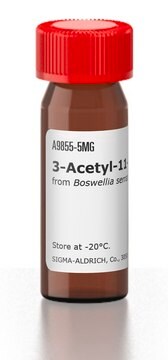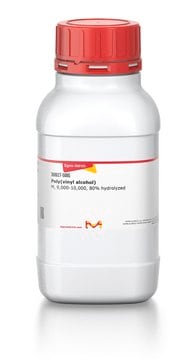70540
Naphthol Yellow S
for microscopy (Hist.), for the precipitation (of amino acids and peptides)
Synonym(s):
2,4-Dinitro-1-naphthol-7-sulfonic acid sodium salt, 5,7-Dinitro-8-hydroxy-2-naphthalenesulfonic acid sodium salt, Acid Yellow 1, Flavianic acid sodium salt
About This Item
Recommended Products
grade
for microscopy (Hist.)
for the precipitation (of amino acids and peptides)
form
powder
solubility
methanol: water (1:1): 0.5 g/10 mL, clear
εmax
≥275 at 423-433 nm in water
≥≥ 250 at 387-397 nm in water
application(s)
diagnostic assay manufacturing
hematology
histology
storage temp.
room temp
SMILES string
[Na+].[Na+].[O-]c1c(cc([N+]([O-])=O)c2ccc(cc12)S([O-])(=O)=O)[N+]([O-])=O
InChI
1S/C10H6N2O8S.2Na/c13-10-7-3-5(21(18,19)20)1-2-6(7)8(11(14)15)4-9(10)12(16)17;;/h1-4,13H,(H,18,19,20);;/q;2*+1/p-2
InChI key
CTIQLGJVGNGFEW-UHFFFAOYSA-L
Looking for similar products? Visit Product Comparison Guide
Related Categories
Application
Biochem/physiol Actions
Analysis Note
Signal Word
Warning
Hazard Statements
Precautionary Statements
Hazard Classifications
Skin Sens. 1 - STOT RE 2
Storage Class Code
11 - Combustible Solids
WGK
WGK 2
Flash Point(F)
Not applicable
Flash Point(C)
Not applicable
Personal Protective Equipment
Certificates of Analysis (COA)
Search for Certificates of Analysis (COA) by entering the products Lot/Batch Number. Lot and Batch Numbers can be found on a product’s label following the words ‘Lot’ or ‘Batch’.
Already Own This Product?
Find documentation for the products that you have recently purchased in the Document Library.
Customers Also Viewed
Our team of scientists has experience in all areas of research including Life Science, Material Science, Chemical Synthesis, Chromatography, Analytical and many others.
Contact Technical Service















